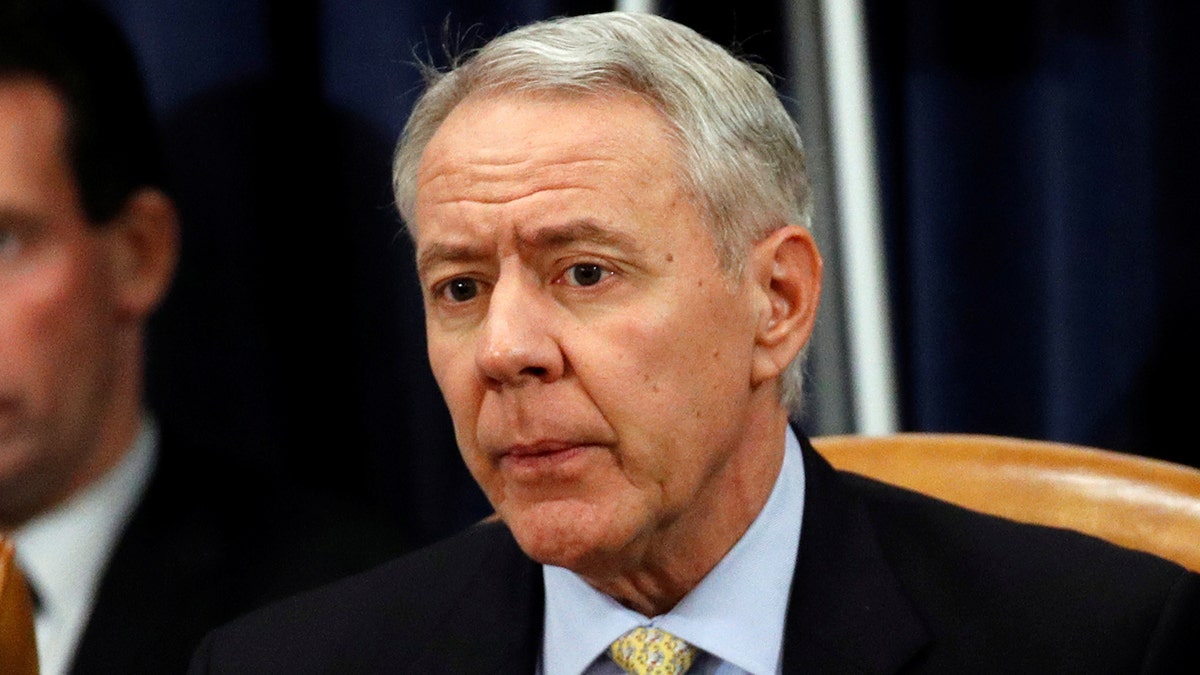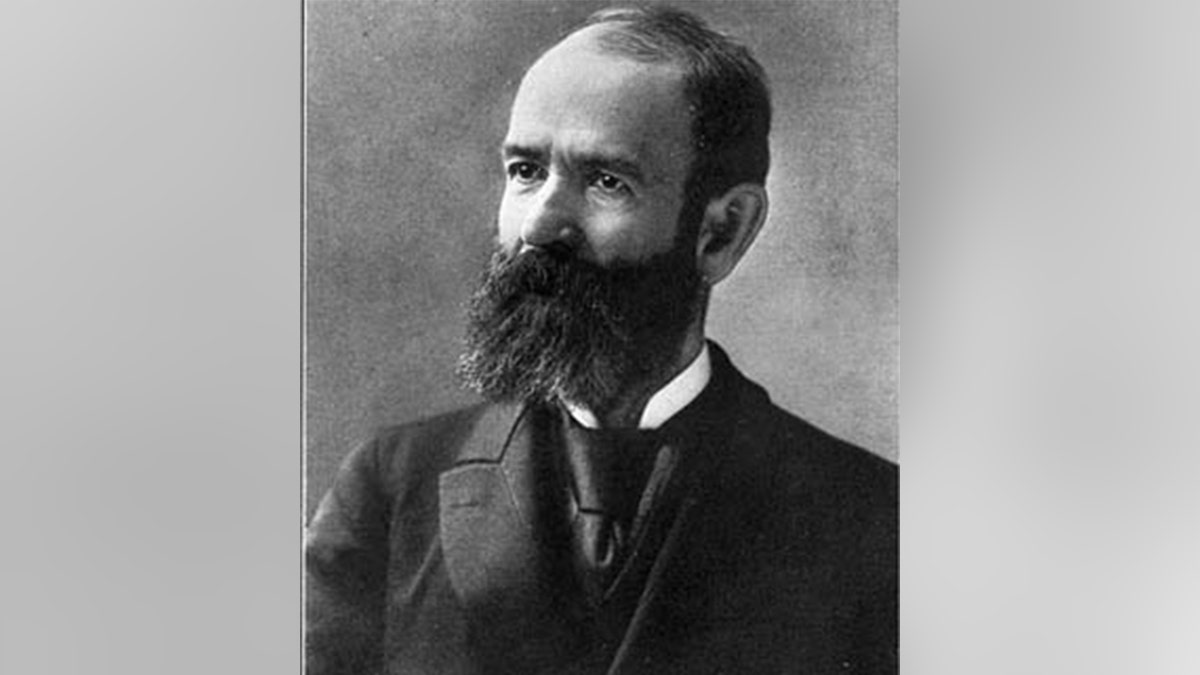Rep. Ken Buck, R-Colo., discusses latest from the Big Tech Censorship and Data Task Force
Censorship critic tells Fox News Digital why the newest recommendations still don't go far enough to protect free expression
Colorado Rep. Ken Buck, R., told Fox News Digital on Wednesday that the recent findings discussed in a closed-door Big Tech task force meeting did not go far enough in addressing such concerns.
Buck, who is a vocal proponent of reining in Big Tech's ability to censor content and even playing field in e-commerce, said there is bipartisan support for as many as six legislative proposals to deal with Big Tech.
"They [the Big Tech Censorship Task Force] had a listening session today, and they put out a sort of proposal -- a point by point proposal, so it wasn't a full report, but it was pretty much their findings and recommendations, and they included some vague language about streamlining anti-tech but in terms of actually addressing the details of updating anti-trust laws so that they include e-commerce on the issues that we're dealing with today, they didn't address that," he told Fox News Digital. "And I think it's a really important part of the report -- and the findings that need to be addressed."
Explaining further into the e-commerce aspect of Big Tech, Buck expressed concern about Amazon and Apple's apparent behavior toward smaller sellers and application vendors.
BUCK ON BIG TECH CENSORSHIP: LIBERALS ARE NEXT IF CONGRESS DOESN'T ACT

Rep. Ken Buck (Patrick Semansky/Pool via REUTERS)
One of the six bills he is supporting deals with "nondiscrimination" in e-commerce, prohibiting such treatment of 3rd party sellers
"If you have a similar product that your company produces… Amazon will see a product is selling real well, they'll decide to go into that business. They will replicate the product," he said, adding that he is in no way suggesting patent infringement in that regard. "[T]hey replicate the idea of the product -- They put the product on page one, and they bury their competitor's product."
He pointed to how e-commerce sites are being sued in India on this matte and that there are similar reports in the European Union.
"We are trying to pass this bill, so we can address that conduct here," he said.
In terms of Apple, Buck said the tech giant charges a surcharge to download Spotify, because they already offer the proprietary Apple Music app – and Spotify is therefore a competitor.
"If they don't have a competitor, a competing product, they don't charge a surcharge. If they do have a competing product, they do start to charge surcharge," he said.
BUCK URGES GOP TO SUPPORT PALETTE OF ANTI-TRUST BILLS

( istock)
There are 16 House Republican lawmakers on the task force, which describes itself as seeking to "restore free expression in America's town squares."
"Big Tech is abusing those protections and choosing to censor Americans with different political views. It is time to scrap Section 230 and start over," a statement on its website reads.
House Minority Leader Kevin McCarthy, R-Calif., previously described the panel as a forum where "members will consider section 230 reform; Big Tech power, where members will focus on competition issues; and Big Tech Data."
Buck told Fox News Digital that there is substantial Republican support for the six pieces of legislation he referenced, but that there could be even more if other lawmakers signed on.
One bill with growing support is legislation supported by dozens of state attorneys general that would allow lawsuits to be brought in plaintiffs home states so as not to be essentially redirected to the Northern District of California, where many Big Tech firms are headquartered.
"This nondiscrimination bill that I mentioned, I think, will get between 30 and 50 Republicans to vote for that bill. So I think we've got a substantial number of Republicans on every one of the antitrust bills, sometimes a majority, sometimes not," he said.
In 2021, Buck criticized Big Tech for essentially blacklisting former President Trump. More recently, YouTube took down a recent interview the former president did with a group of podcasters.
Buck said the White House stopped taking his calls on the matter since President Biden was inaugurated. However, through word from Democratic lawmaker-intermediaries, the administration thus far sounds supportive of some bipartisan legislation.
The Colorado lawmaker went on to warn that the left can just as easily be censored as the right, and that reining in Big Tech is key to the American custom of a marketplace of ideas. He commented that even before Big Tech or even the automobile came on the scene, "robber-barons" and powerful interests would engage in widespread censorship. He cited American railroad mogul Jason Gould, who held a controlling stake in Western Union – then a major telegraph company – in the 1880s.

1880s U.S. railroad, telegraph mogul Jay Gould, one of the wealthiest men of the 19th century. (https://www.tsl.texas.gov/exhibits/railroad/fight/gould.html)
Gould was a supporter of GOP President Rutherford Hayes, and Buck recounted how that bias allegedly led Gould to monitor or slow down reports from Democratic interests, while accelerating the transport of Republican reports beneficial to Hayes.
"The result, unfortunately, was the end of Reconstruction. But it was all because of Jay Gould having a monopoly on the dissemination of information," Buck told Fox News Digital. "And that's what we have now is we have a monopoly on the dissemination of information when you think that 94% of searches are conducted on Google. And if Google decides they want a Republican president, they will change their algorithm to benefit a Republican -- if they want a Democrat president, they will change their algorithm to benefit a Democrat."
He added, "And so I think it's really important that that all sides understand the pernicious nature of a monopoly on the dissemination of information."





















